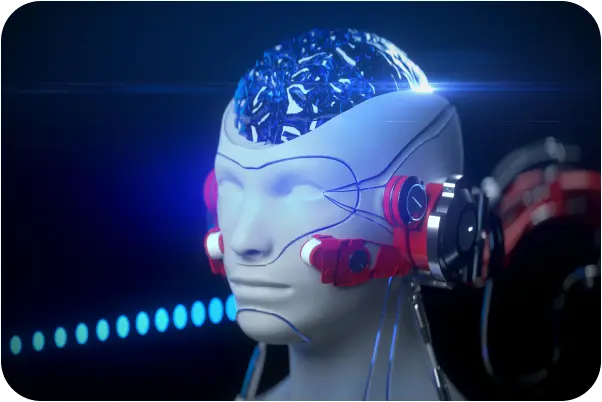Which datasets are good benchmarks for TTS models?
TTS
Data Analysis
Speech Synthesis
When developing Text-to-Speech (TTS) models, choosing the right datasets is crucial for creating high-quality, natural-sounding speech synthesis. Here, we delve into some of the most notable benchmark datasets that help in training and evaluating TTS models, highlighting their features, importance, and applications.
Essential Benchmark Datasets for TTS Models
- LJSpeech: LJSpeech is a popular dataset featuring 13,100 short audio clips of a single female speaker reading public domain texts. Recorded at 22,050 Hz, it serves as a baseline for many TTS experiments. This dataset is ideal for tasks requiring clear, consistent voice quality and is commonly used in research to fine-tune models for standard speech synthesis tasks.
- VCTK Corpus: The VCTK Corpus includes recordings from 109 native English speakers with diverse accents, each reading phonetically balanced sentences. Recorded at 48 kHz, it provides excellent resources for training models that need to handle various accents and speaker variations. This makes it particularly valuable for developing multilingual TTS systems and accent adaptation applications.
- Common Voice: Mozilla's Common Voice is a large, multilingual dataset created through crowd-sourced contributions. It offers a wide array of accents and languages, making it suitable for training robust, diverse TTS models. However, the quality varies due to its community-driven nature, which might be a consideration for tasks requiring high-quality audio consistency.
- LibriTTS: Derived from LibriVox audiobooks, LibriTTS features over 585 hours of English speech from multiple speakers, segmented and annotated for phoneme alignments. This dataset is particularly useful for training models in both TTS and ASR tasks, providing a wide range of speaking styles and voices, enhancing the generalization capability of TTS systems.
- Blizzard Challenge Datasets: Released annually, Blizzard Challenge datasets are designed for evaluating TTS systems through structured tasks and high-quality recordings. These datasets help researchers and developers assess model performance across different challenges, offering valuable insights into the strengths and weaknesses of various TTS approaches.
Why These Datasets Matter
The choice of benchmark datasets significantly impacts the development cycle of TTS models. They are essential for:
- Performance Evaluation: Benchmarks allow for objective comparison of TTS systems, helping teams gauge the effectiveness of their models.
- Diversity and Realism: Datasets with varied accents and speaking styles lead to more versatile models capable of handling real-world applications.
- Driving Innovation: By building on established benchmarks, researchers can push the boundaries in TTS technology and methodology.
Key Considerations in Dataset Selection
- Quality vs. Quantity: While larger datasets offer more diversity, high-quality recordings are crucial for model performance. Sometimes, smaller, high-quality datasets can outperform larger, lower-quality ones.
- Speaker Representation: Ensure the dataset includes voices that reflect the target user base. This is crucial for applications like IVR systems or virtual assistants, where relatability is key.
- Annotation Quality: Well-annotated datasets with text and phoneme alignments simplify training and reduce preprocessing effort, enhancing model efficiency.
Common Pitfalls in Dataset Selection
- Neglecting Diversity: Relying on a single speaker or accent limits a model's applicability across different demographics.
- Overlooking Audio Quality: Poor audio quality can lead to models that produce unnatural or distorted speech, affecting user experience.
- Ignoring Compliance and Ethics: Ensure that datasets comply with legal and ethical standards, including obtaining necessary consents and safeguarding data privacy.
Conclusion and Best Practices for TTS Benchmark Selection
Selecting the right benchmark datasets is foundational for developing effective TTS models. By understanding the unique features and applications of each dataset, teams can enhance their models, resulting in more natural and versatile speech synthesis. FutureBeeAI offers high-quality, professionally curated TTS datasets tailored to meet diverse needs, ensuring scalability and precision in your AI projects.
Smart FAQs
Q. Why is speaker diversity important in TTS datasets?
A. Speaker diversity is crucial as it enables models to synthesize speech that resonates with a broad audience. Including different accents, genders, and age groups helps create more relatable and effective TTS systems.
Q. How do I assess the quality of a TTS dataset?
A. Evaluate the audio clarity, recording conditions, speaker representation, and presence of annotations. Listening tests and comparisons with benchmark datasets can also offer insights into the dataset's effectiveness for training purposes. For more information on our speech datasets, you can explore our offerings.
What Else Do People Ask?
Related AI Articles
Browse Matching Datasets
Acquiring high-quality AI datasets has never been easier!!!
Get in touch with our AI data expert now!








